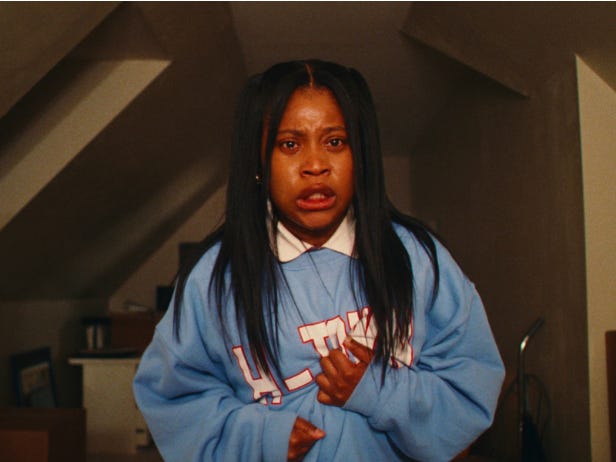Very Scholarly, Very Mindful
How did the very Black and queer show Swarm, change the horror genre?
In today’s post:
Q (not) A Beauty & Pop Culture Questions
The Full Beat Black, Queer, Horrific: ‘Swarm’ is a One of a Kind Horror-Comedy Series (Reposted from Screen Queens)
Am I planning to slather myself in Topicals from head to toe? Yes, because Topicals recently released the Faded Brightening Cleansing Bar and I have to have it. If you’ve had a chance to try it out already, please let us know what your experience was like in the comments. I’m going to be testing out the Faded serum over the next couple of weeks, so we’ll check in about that soon. 👩🏾🔬
Is “Dolly Beauty” Dolly Parton’s first foray into the beauty/cosmetic industry? I couldn’t believe that Parton’s upcoming lipstick line was her first beauty endeavor and a quick search proved I was right. In this infomercial from 1993, Parton talks about what inspired her to launch the Beauty Confidence Collection. If you like owning beauty history, the supplemental book about how to use the products is available on Ebay.1
Should we be worried about brands growing reliance on AI generated models? Alanna argues that boys, teens, and men can fail (intentionally and unintentionally) to differentiate between real women and female oriented AI products. She argues that there is a terrifying correlation between AI generated female subservience and violence against women, IRL. While women could never meet the expectations demanded of generated models, they can be punished for such “failures.”
This week I decided to highlight an essay I published in Screen Queens. I am really proud of this piece and I want to do what I can to continue conversation around Swarm, because it was so well done. While this post is not an explicit study of beauty, it explores race, gender, and sexuality which simultaneously shape/are shaped by our perceptions of beauty.
Below you will find a snippet of the piece and a link to read it in full. Enjoy😘
Link to the Pintrest board that was inspired by the essay can be found here.
In the Emmy-nominated horror-comedy Swarm, pop star obsessed Andrea “Dre” Greene goes on a cross-country killing spree. Dre is a member of The Swarm, a Beyhive coded fandom dedicated to fictional singer Ni’jah, a Beyonce coded pop star. Dre is unlike any other central Black horror figure before her, specifically in terms of her gender expression, sexual orientation, and murderous tendencies. Like Emerald ‘Em’ Haywood of Nope (2023), Dre is one of the very few Black horror stars who is openly queer and does not present as hyper-feminine. Unlike Em, Dre is a cold villain who occasionally evokes sympathy from the audience, putting her at odds with the Black female horror leads that came before her.
Traditionally, Black female protagonists in horror have been heterosexual, femme-presenting, and victims who only commit, or attempt to commit, murder under extenuating circumstances. One such circumstance is that they are seeking revenge. The Blaxploitation zombie horror film, Sugar Hill (1974), is a model example of this trope. In the film, Sugar Hill’s boyfriend is murdered by a racist gangster and his crew. Sugar enlists and invokes the Loa Baron Samedi and an army of formerly enslaved zombies to help kill them. Many films produced during the Blaxploitation era are rightfully criticized for their overtly hyper-masculine and sexist themes. However, they are also recognized for providing Black actresses starring roles as powerful heroines at the height of the Black Power movement.
According to Stephanie Williams, the compulsory hyper-femininity and heterosexuality of these lead actresses should also be explored…
Click here to continue reading the essay
My stance on celebrity beauty lines is still firm, even though Dolly has been that girl for decades.



